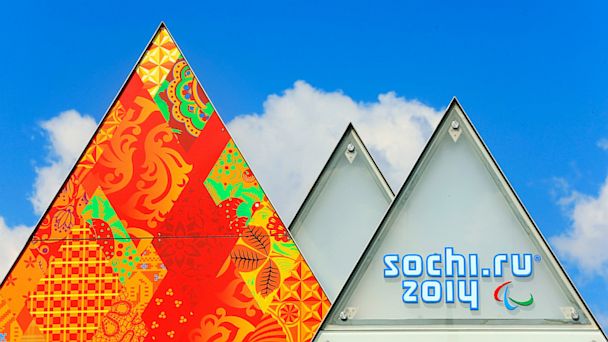Olympic Officials Seek 'Clarification' on Russia Anti-Gay Law

A sign celebrates the 2014 Sochi Olympic Games ahead of the 14th IAAF World Athletics Championships, Aug. 6, 2013, in Moscow. Jamie Squire/Getty Images
MOSCOW-The International Olympic Committee says it has received written assurances from Russian authorities that athletes at next year's Winter Olympics in Sochi will not be subject to Russia's new anti-gay law.
But the head of the IOC says they remain concerned about elements of the law and have asked for "clarification" about certain unspecified paragraphs.
"We are not clear of the English translation of the Russian law and we want clarifications of these translations so we can understand what has been communicated to us," Jacques Rogge told reporters on Friday.
His comments come amid increasing pressure on the IOC. The gay rights group All Out recently delivered a petition, signed by over 300,000 people, urging the IOC to speak out against the law and explain how they plan to protect Olympic guests in Sochi. Others are even calling for a boycott of the games. In the United States, the law has sparked calls for a boycott of Russian products, including vodka.
Rogge declined to condemn the law on Friday, saying he still needed to better understand its scope. "There are still too many uncertainties in the case that we want to have clarified before we make a final decision," he said.
The law, technically against spreading "propaganda" about "non-traditional sexual relationships" to minors, in practice makes it potentially illegal to even speak about homosexuality or to display a gay pride symbol like a rainbow flag in public. Opponents say the law is open to dangerous subjective interpretations and could be used as a pretext to harass openly gay individuals. Violators of the law face steep fines and jail time. Foreigners face similar penalties plus deportation.
Previously the IOC said it had received assurances from top Russian officials that the law will not apply to athletes and fans during the games, but since then Russian officials have sent mixed signals. Just yesterday, Russia's Sports Minister warned that Olympic athletes "have to respect the laws of the country."
Rogge said the IOC had only received oral reassurances, but got them in writing yesterday.
"We have studied it but we are still unclear on certain things and we decided to ask for more clarification so we are waiting for these clarifications before we make any final judgments on these reassurances," he added.
Rogge declined to speculate what might happen if an athlete were to stage a protest during the games. "If an athlete makes a protest, well that has to be considered case by case so I cannot give you a generic answer," he said.
He stressed that the Olympic charter "says that sports is a human right and it should be available to all who gather to participate in the games.
"The games themselves should be open to all free of discrimination," he added.